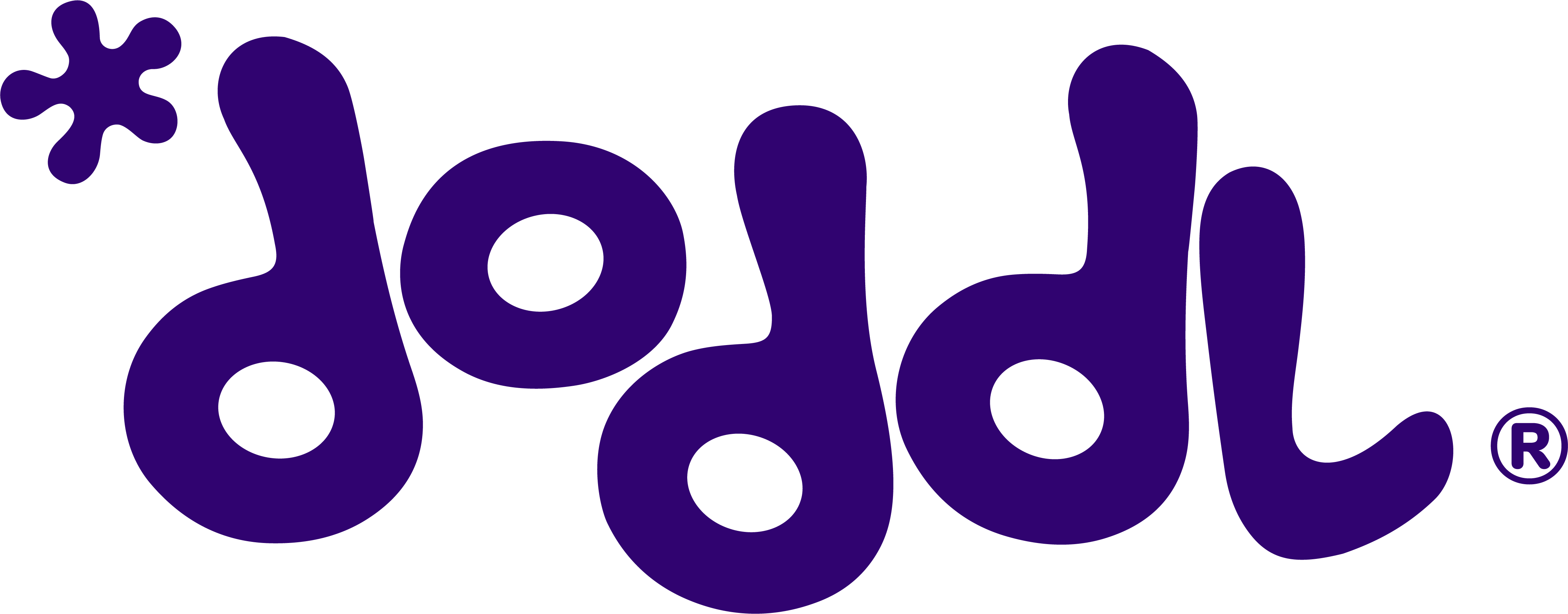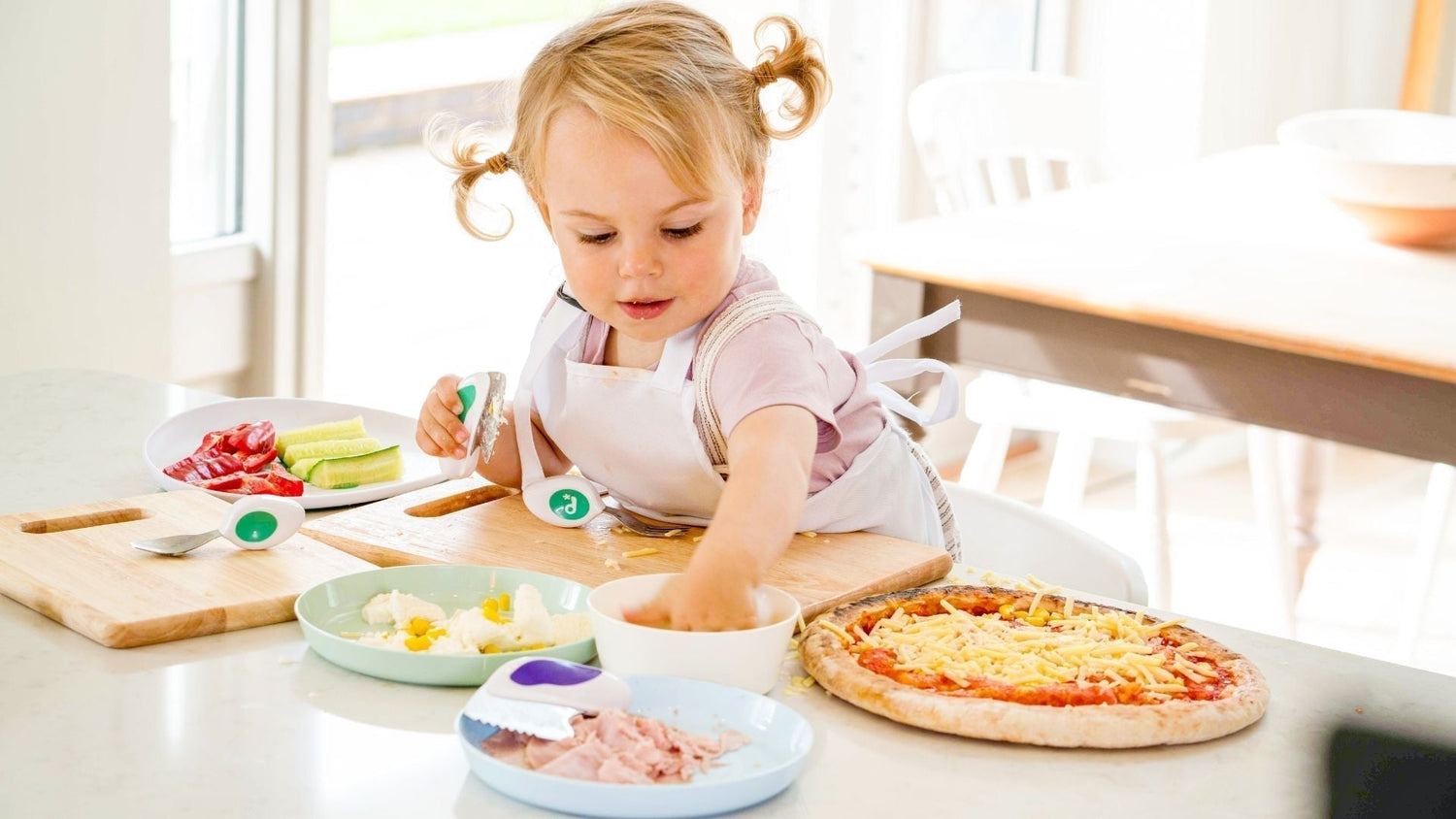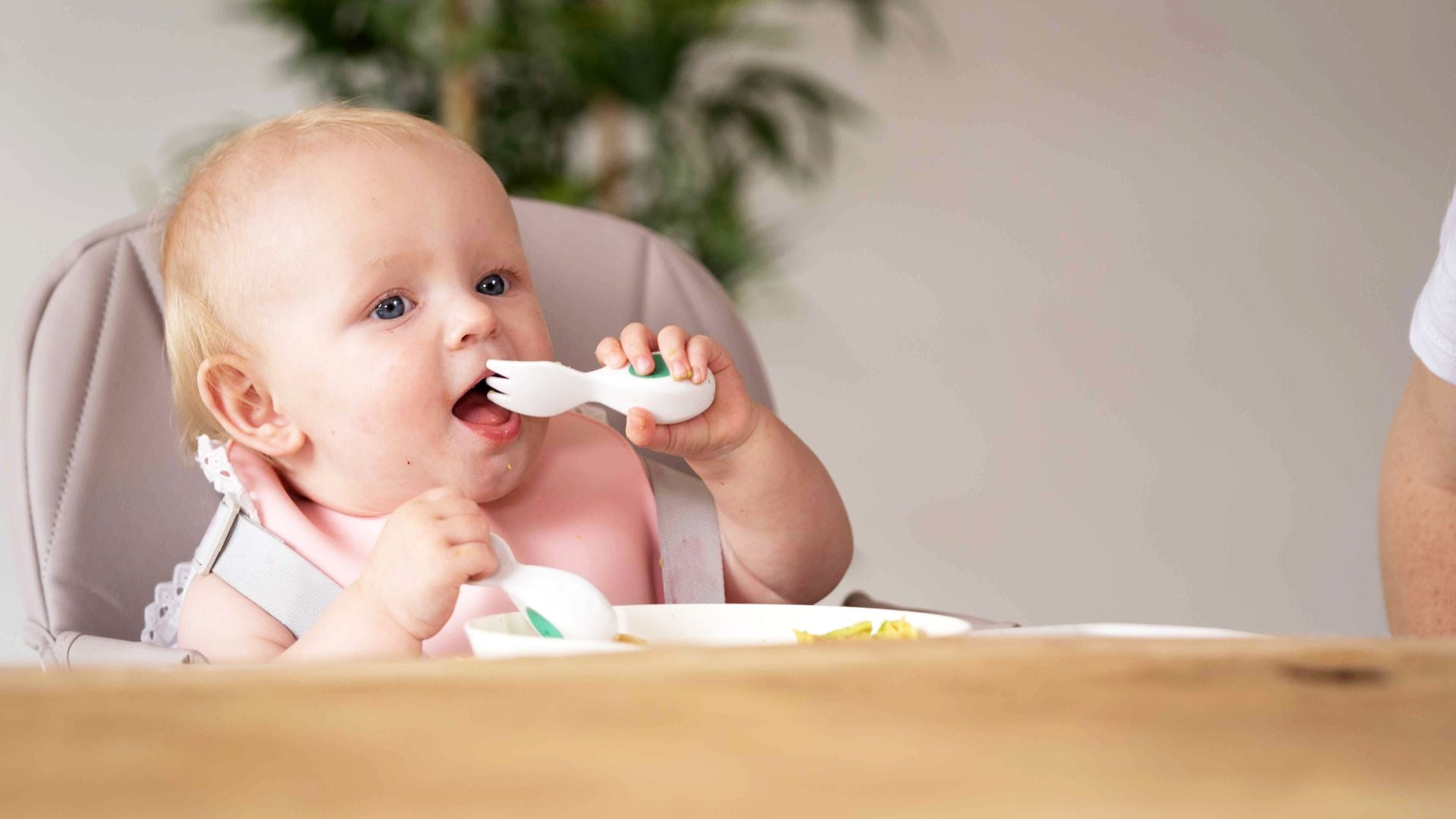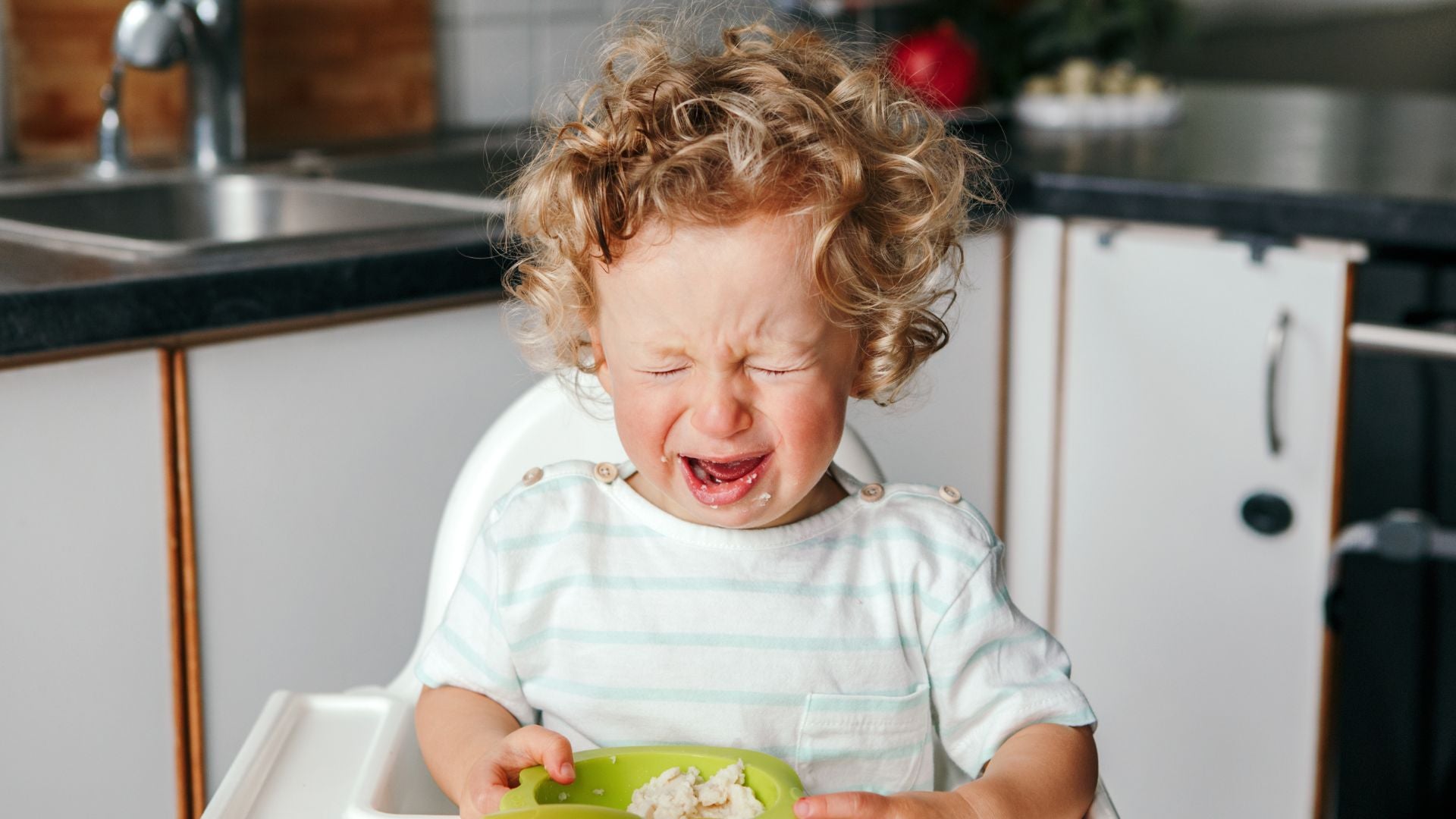Are you ready to embark on a culinary adventure with your little sous chef? Introducing cooking to toddlers can be a rewarding and skill-building activity that sparks curiosity, encourages healthy eating habits, and supports their development. Plus, it's a great way to bond and create lasting memories together!
But wait, before you start imagining flour-covered floors and sauce-splattered walls, let's talk about how to make cooking with toddlers safe, fun, and educational.
We've got you covered with practical tips and age-appropriate activities that will have your little one whipping up masterpieces in no time!
Why cooking with toddlers matters

Cooking with toddlers isn't just about making tasty treats (although that's definitely a bonus!). It's also an excellent opportunity to support their growth and development in several key areas:
- Fine motor skills:
All that stirring, pouring, and scooping helps strengthen their little hands and improve their fine motor skills. Plus, it's great practice for future utensil-wielding at mealtimes!
- Language development:
Cooking introduces new vocabulary words like "whisk," “chop” and "blend”. You can also work on following simple directions and describing flavours and textures.
- Confidence-building:
Accomplishing tasks and creating something delicious gives toddlers a sense of pride and boosts their self-esteem.
- Healthy eating habits:
Involving kids in meal prep can make them less fussy and more open to trying new foods and understanding where their food comes from.
Of course, cooking with toddlers also comes with its fair share of challenges. Short attention spans, potential messes, and safety concerns might make you hesitate to bring your little one into the kitchen. But fear not! With a bit of preparation and the right approach, cooking can be a joyful learning experience for both of you.
Safety and preparation
Before you start your cooking adventures, it's essential to create a toddler-friendly environment. Here are some key safety tips:
- Establish a designated child-safe zone:
Set up a workspace for your toddler away from hot surfaces and sharp objects. A sturdy stool or learning tower can help them reach the counter safely.
- Supervise at all times:
Always keep a close eye on your little chef, especially when they're using tools or working with food.
- Choose age-appropriate tasks:
Stick to simple, low-risk activities like stirring, pouring, or tearing lettuce. Save the more complex tasks for when they're older. You may want to introduce a toddler knife to the kitchen to help your little one support with chopping - this is great for their confidence with gripping cutlery and genuinely helpful for you too!
It's also a good idea to do some prep work beforehand. Pre-measure ingredients, gather supplies, and have a game plan in mind. The more organised you are, the smoother the cooking session will go!
Developmental benefits of cooking

Cooking is a fantastic way to support your toddler's development in several key areas:
- Motor skills
Mixing, pouring, rolling out dough - all these actions help strengthen fine motor skills and hand-eye coordination. Using tools like stamps, shape cutters and small whisks also helps improve their grasp. See our guide on fine motor skills for more info.
- Language and cognitive development:
Following recipes encourages listening skills and introduces new vocabulary. Cooking also involves basic math concepts like counting and measuring.
- Social-emotional learning:
Cooking together promotes teamwork, turn-taking, and patience. It's a great opportunity to model cooperation and communication skills.
Remember, every child develops at their own pace. Focus on the process and the fun, not the end result!
doddl: Cutlery designed to support your child's self-feeding journey

At doddl, we've designed cutlery sets that support your child's self-feeding journey. Having the right tools can help them feel confident in trying cooking activities too:
- Baby Cutlery (6-12 months) Soft tips for tender gums, ergonomic handles for easy grip, and they're dishwasher-safe (because who has time for handwashing?)
- Toddler Cutlery (12 months+) Promotes the pincer grip needed for utensils, angled for ease of use. Self-feeding should be fun, not frustrating!
No matter where your child is in their development, doddl has a cutlery set to support their mealtime milestones and make venturing into cooking an enjoyable bonding experience.
Getting started: Age-appropriate tasks
So, what can your mini masterchef actually do in the kitchen? Here are some ideas broken down by age:
12-18 months:
- Let them sift flour for fairy cakes
- Pour pre-measured ingredients into bowls and have them stir
- Sprinkle herbs or seasoning on dishes
- Encourage them to hand you ingredients
18-24 months:
- Assemble simple dishes like sandwiches or wraps
- Thread soft foods on skewers (with supervision)
- Tear or break food items like lettuce and bread
- Brush oils onto baking trays or doughs
2-3 years:
- Use cookie cutters or food stamps to make shapes
- Spread nut butters or jam on bread or crackers
- Spoon batters onto trays
- Measure dry ingredients
- Press buttons on blenders (with your guidance)
Remember, these are just guidelines. Follow your child's lead and never leave them unattended with cooking equipment.
Toddler-friendly recipe ideas
Keep things simple with recipes that have minimal steps and kid-appeal. Some toddler-friendly ideas:
- Fresh fruit skewers with yogurt dip
- Simple pizza faces made with pitta bread, sauce, and veggie toppings
- Pumpkin spice energy balls
- One-bowl banana bread or muffins
- Simple oat cookies
Start with just one or two tasks per recipe. You can always increase their involvement as they grow and gain new skills! There are lots more ideas in our round up of toddler recipes.
Tips for a positive cooking experience

Cooking with toddlers can be chaotic, but these tips will help keep things positive:
- Cover surfaces, use spill-proof bowls, and have plenty of towels handy. Messes are part of the learning!
- Aim for 5-10 minute activities to match their attention span. You can always come back to a recipe later.
- Let them lead. If they want to stir the batter for 5 minutes straight, let them! This is about exploration and fun.
- Describe what you're doing to help them understand the process. Use simple terms and lots of encouragement.
- Praise their attempts, even if the end result is imperfect. Saying things like, "Wow, you stirred that so well!" or "I love how carefully you sprinkled the cheese!" will boost their confidence.
Remember, cooking with toddlers is about the journey, not the destination. Embrace the imperfections and enjoy quality time together!
Safety reminders and pitfalls to avoid
Of course, safety should always come first when cooking with little ones. A few reminders and watch-outs:
- Never leave them unsupervised near heat sources or sharp tools
- Keep pan handles turned inward, and use back burners when possible
- Be cautious with common allergens and potential choking hazards
- Do a once-over of your space to remove hazards before you begin
- Model proper handwashing and food safety habits
When in doubt, err on the side of caution. Trust your gut and modify activities to match your comfort level and your child's skills.
Building a lifelong love of cooking

Cooking with your toddler is about so much more than what you create. It's a chance to bond, make memories, and lay the foundation for a lifelong love of good food and healthy habits.
As they grow, continue to build on their skills and confidence in the kitchen. Let them take on more responsibility, choose recipes, and even plan meals. Encourage their creativity and experimentation, and don't be afraid to let them make mistakes - that's how we all learn!
For more tips on supporting your toddler's development and making mealtimes enjoyable, check out our other blog posts. We're here to celebrate every milestone and messy moment along the way!




Hinterlasse einen Kommentar
Diese Website ist durch hCaptcha geschützt und es gelten die allgemeinen Geschäftsbedingungen und Datenschutzbestimmungen von hCaptcha.